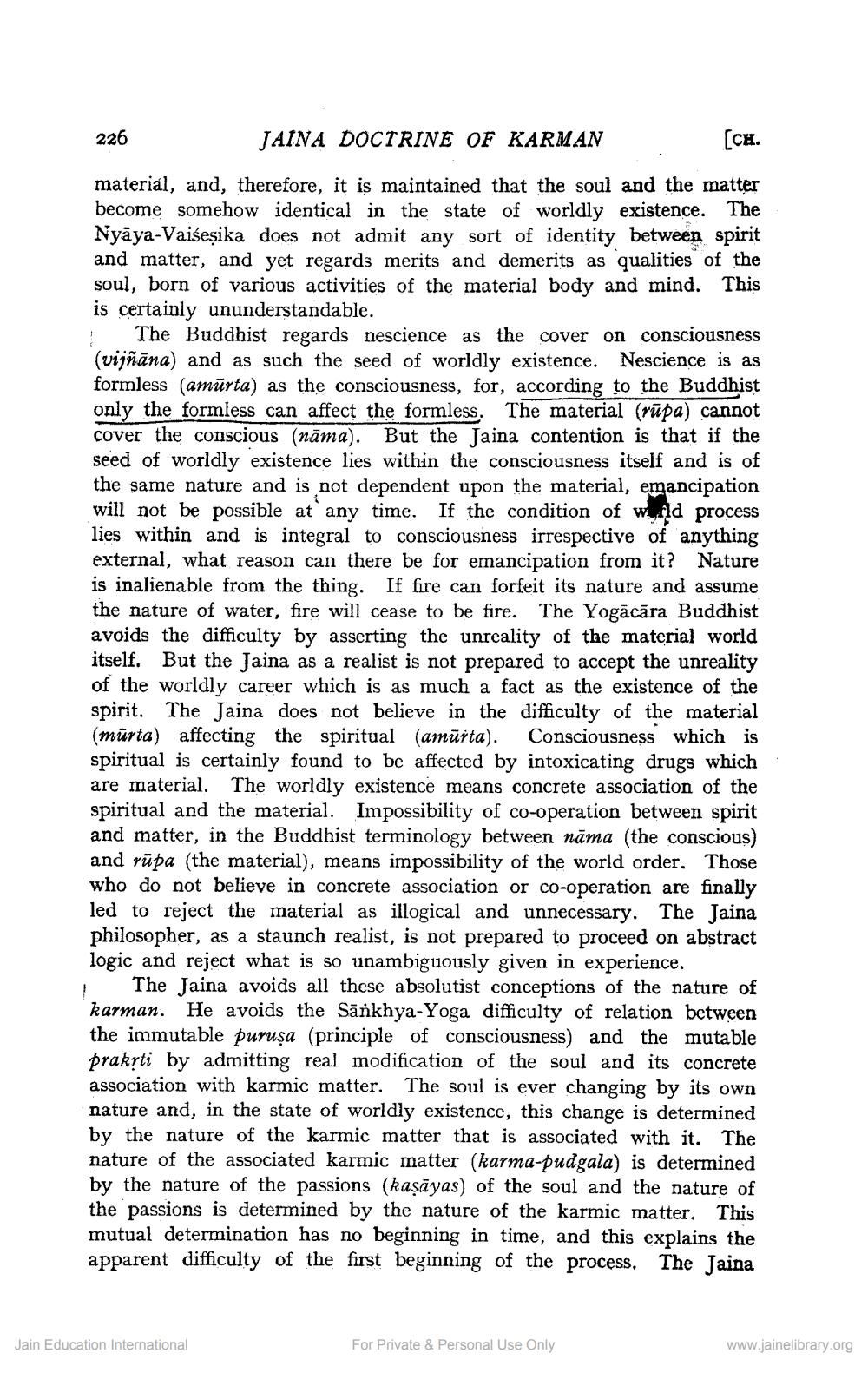________________
226
JAINA DOCTRINE OF KARMAN
[CH.
material, and, therefore, it is maintained that the soul and the matter become somehow identical in the state of worldly existence. The Nyāya-Vaiseșika does not admit any sort of identity between spirit and matter, and yet regards merits and demerits as qualities of the soul, born of various activities of the material body and mind. This is certainly ununderstandable.
The Buddhist regards nescience as the cover on consciousness (vijñāna) and as such the seed of worldly existence. Nescience is as formless (amūrta) as the consciousness, for, according to the Buddhist only the formless can affect the formless. The material (rupa) cannot cover the conscious (nāma). But the Jaina contention is that if the seed of worldly existence lies within the consciousness itself and is of the same nature and is not dependent upon the material, emancipation will not be possible at any time. If the condition of wild process lies within and is integral to consciousness irrespective of anything external, what reason can there be for emancipation from it? Nature is inalienable from the thing. If fire can forfeit its nature and assume the nature of water, fire will cease to be fire. The Yogācāra Buddhist avoids the difficulty by asserting the unreality of the material world itself. But the Jaina as a realist is not prepared to accept the unreality of the worldly career which is as much a fact as the existence of the spirit. The Jaina does not believe in the difficulty of the material (mūrta) affecting the spiritual (amūita). Consciousness which is spiritual is certainly found to be affected by intoxicating drugs which are material. The worldly existence means concrete association of the spiritual and the material. Impossibility of co-operation between spirit and matter, in the Buddhist terminology between nāma (the conscious) and rūpa (the material), means impossibility of the world order. Those who do not believe in concrete association or co-operation are finally led to reject the material as illogical and unnecessary. The Jaina philosopher, as a staunch realist, is not prepared to proceed on abstract logic and reject what is so unambiguously given in experience. | The Jaina avoids all these absolutist conceptions of the nature of karman. He avoids the Sāńkhya-Yoga difficulty of relation between the immutable purusa (principle of consciousness) and the mutable prakrti by admitting real modification of the soul and its concrete association with karmic matter. The soul is ever changing by its own nature and, in the state of worldly existence, this change is determined by the nature of the karmic matter that is associated with it. The nature of the associated karmic matter (karma-pudgala) is determined by the nature of the passions (kaşāyas) of the soul and the nature of the passions is determined by the nature of the karmic matter. This mutual determination has no beginning in time, and this explains the apparent difficulty of the first beginning of the process. The Jaina
Jain Education International
For Private & Personal Use Only
www.jainelibrary.org




